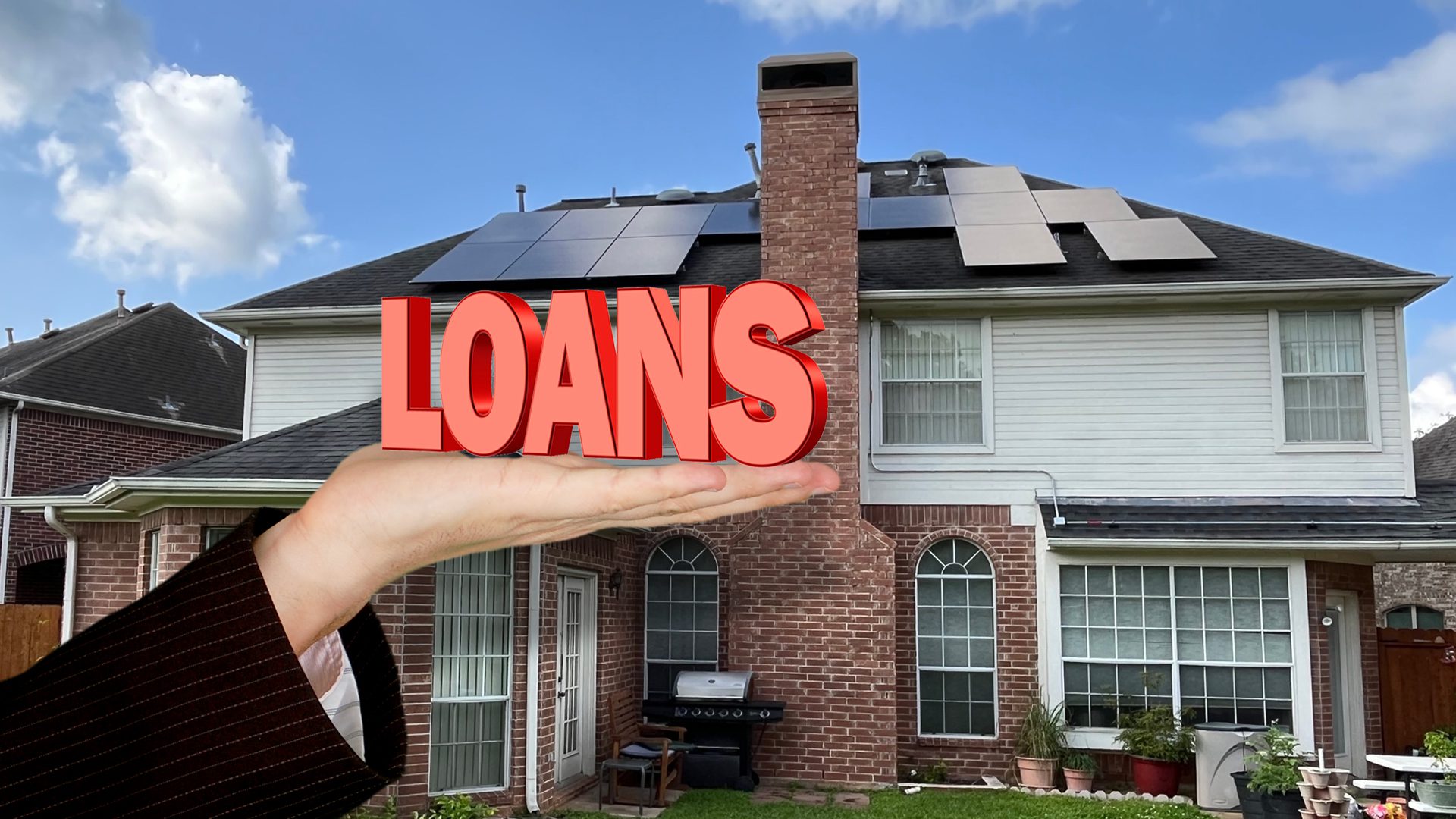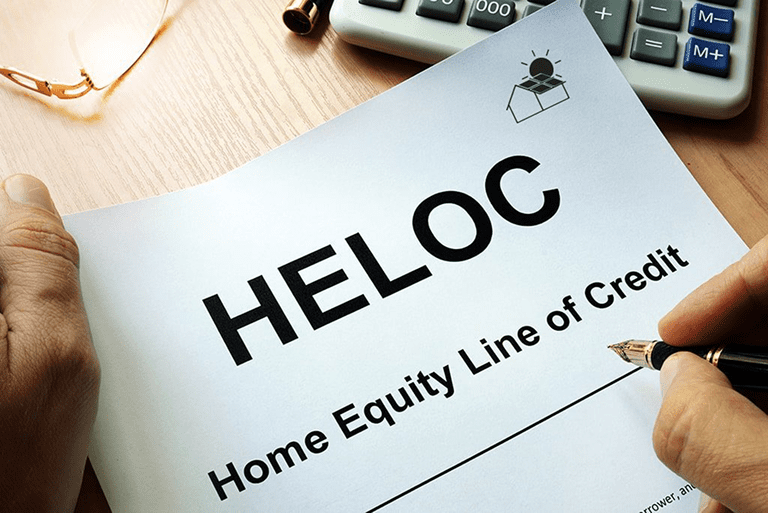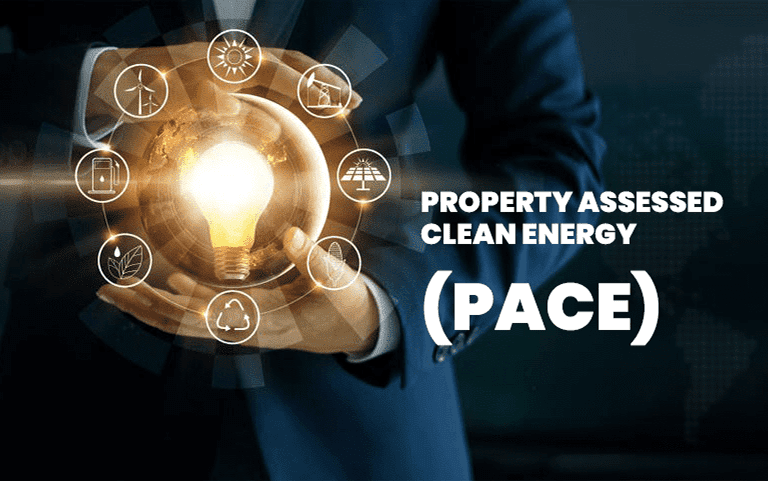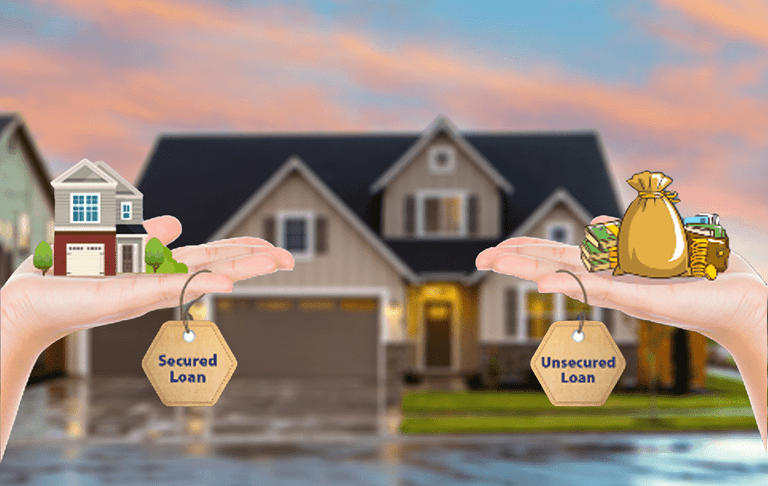- Updated On: April 11, 2024
Understanding the Differences Between Secured and Unsecured Loans
Solar loans are a cost-effective solution for installing solar panels on your home or business. However, many are unsure about their functionality and the benefits they might derive from this type of solar financing. There are multiple types of loans you could qualify for, here’s what you should know about each. The two major types of loans used to finance solar installations on hames are secured and unsecured loans. Here we’ll discuss the differences between them to help you decide which is best for you.

What is a solar loan?
Solar loans make it easy and economical for customers to purchase a residential photovoltaic system without paying for it up front with cash. The process for obtaining a solar loan is similar to that of other home improvement or business loans. A lender offers you a set amount to cover the cost of a solar panel installation, sets a rate of interest for the installation, and you agree to repay the amount at certain rates over a set period of time.
Solar loans differ from other types of solar financing in that, under a solar loan, the homeowner is considered the owner of the solar array—allowing them to reap all the incentives and tax breaks offered directly, like the Investment Tax Credit and net-metering. Under solar leases and power-purchase agreements (PPAs), a third party financier owns the system, the homeowner pays for the array over time and the financier gets the up-front benefits of some incentives and shares them with the homeowner. In addition, a solar loan can make it easier to move the loan into a refinanced mortgage or sell the home with the solar installation.
There are Two Main Types of Solar Loans:
Secured Solar Loans:
Secured loans are backed by your assets, otherwise called collateral. Typically, this would include your home, property or other high value items, like art or vehicles, even the solar system itself. The primary reason for providing collateral on a loan is to reduce the risk for lenders. If you fail to repay your loan, the lender may seize and sell the collateral to cover the obligation.
Pros:
Lower Interest Rates: Secured loans offer security to lenders, allowing them to offer the loans at lower interest rates for borrowers, making them a less-expensive option overall.
Higher Loan Amounts: Lenders are more willing to offer larger loan amounts with secured loans, as they have collateral to recover their investment in case of default.
Credit Score Improvement: Repaying a secured loan on time can also help improve your credit score, making it a great option for those with a less-than-perfect credit background.
Flexible Eligibility: Secured loans have more lenient eligibility requirements, making it easier to get approved even with a less-than-perfect credit history.

Cons:
Losing Collateral: A downside of secured solar loans is the risk of losing your collateral. If you fail to make your loan payments, the lender has the authority to seize collateral in lieu of payment.
Restricted Usage: Another limitation of secured solar loans is their restricted usage. These loans are created exclusively for the purchase of solar equipment.
Defaulting Will Impact Your Credit Score: Secured solar loans have low credit score requirements, making it easy to get approved. However, this also means you might end up borrowing more money than you can handle. If you default on a secured solar loan, you can lose collateral, and it will leave a negative mark on your credit history.
Different Types of Secured Loans:
There are various types of secured loans, including:
- Home Equity Line of Credit (HELOC)
- Home Equity Loan
- Federal Housing Authority Loan (FHA)
- Property Assessed Clean Energy (PACE)
The most common solar loans are HELOC and the Home Equity Loan.
HELOC:

When you apply for a HELOC loan, you are essentially opening a credit account with your bank. This allows you to withdraw cash up to a set limit whenever you need it with an interest rate that may change over time.
These loans are typically excellent for remodels where the ultimate cost has not yet been determined. If you are adding solar panels along with other home improvements, a HELOC is a viable and attractive option for solar financing since it allows more flexibility than other loan types.
Home Equity Loan:
The home equity loan offers you a lump-sum payment and a fixed interest rate throughout the loan term. These are suited for those only installing a solar system because you will know the complete upfront cost of the system and loan will cover it.
FHA Loan:
FHA Loan:

As of 2024, 38 states, as well as Washington, D.C., have passed legislation authorizing PACE programs. These initiatives enable local governments to provide PACE financing for solar and other energy installations. However, the majority of these programs only support PACE for businesses. Only California, Florida, and Missouri offer residential PACE financing. With this financing option, an organization or public agency provides the loan capital, and you can repay it over a 10- to 20-year period through assessments on your property tax bill.
Unsecured Solar Loans:
Unsecured solar loans are not backed by financial assets. They are based on your credit history and the lender’s decision. These types of loans have a higher risk for lenders and are less prevalent than their secured counterparts.
Pros:
Flexible Spending Options: With an unsecured loan, you have the freedom to use the funds however you please. This gives you greater flexibility compared to most secured loans.
Quick and Easy Approval: The application and approval process for these loans is speedy. After financiers check your credit history, you can expect a response within a few days.
No Need to Risk Your Assets: Since these loans don’t require collateral, you can rest easy knowing that you won’t lose any financial assets if you’re unable to make your payments on time.
Cons:
Strict eligibility requirements: Lenders will thoroughly assess your credit score, credit history, and income. This means you’ll need to have a solid financial standing to meet their criteria.
Hidden fees: Some lenders may tack on hidden charges like origination fees to compensate for the higher risks associated with these loans.

Sky-High Interest Rates: Unsecured loans often come with higher interest rates. Lenders charge more to offset the increased risk and absence of collateral.
Limited Loan Amounts: Financial institutions typically offer smaller loan amounts for unsecured loans to minimize potential losses in case of default.
Secured or Unsecured Loans — Which one to choose?
When it comes to selecting a loan for solar, it’s important to take into account your personal needs and financial situation. Secured loans are a solid option and provide greater long-term value with lower interest rates. However, you’ll have to put your financial assets at risk as collateral.

Unsecured loans are more appealing if you’re not concerned about the higher interest rates. They also offer a faster application and approval process, making them a preferable choice for some.
Conclusion:
When choosing between solar loans, think about your risk tolerance and financial circumstances. Secured loans offer lower rates but demand collateral, whereas unsecured loans have higher interest rates but no collateral. If you’re willing to take on some risk, secured loans offer lower interest rates and greater loan amounts. If you want a faster approval process and no collateral, go with unsecured loans.
Before you commit to any contract, it’s crucial to carefully weigh the advantages and disadvantages of each solar panel loan. And if you require further information about solar financing options, don’t hesitate to reach out to SolarSME.
Related Articles:
30% federal tax credit is expiring in 2025. But if you missed out on it, you can still access solar power with Solar Lease/PPA financing. This option is an opportunity to get all the advantages of solar power while making no large initial investments. Explore More!
Among the renewable energy sources, the most trending one is solar energy. But the question is, are solar panels worth it? Solar systems for homes are reliable systems.
It may require an upfront cost to install solar panels, however, there are various solar financing options. Explore the best option . between solar lease vs buy and make an informed choice.



